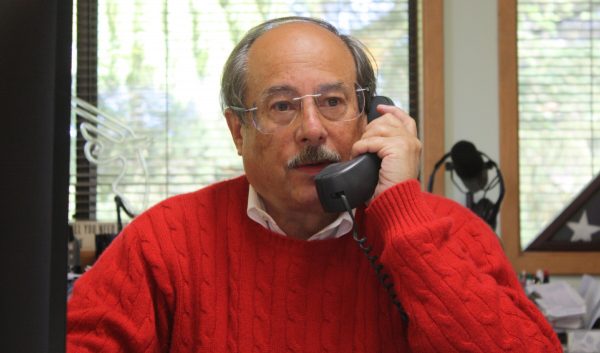
Washington, D.C. Attorney General Karl Racine has thrown another roadblock in the path of law-abiding District of Columbia residents in their effort to secure the right to bear arms by asking for a full court review of a Second Amendment Foundation victory last month that ruled the District’s “good reason” requirement was unconstitutional.
SAF founder and Executive Vice President Alan M. Gottlieb quickly issued a scathing statement about the request. The case is known as Wrenn v. District of Columbia.
“They have no intention of complying with any court decision that supports the right to keep and bear arms,” Gottlieb said. “It took the Heller decision to force them to allow a gun in your own home for self-defense. It took the Palmer decision, another SAF case, to force them to repeal their total ban on carry and now they are kicking and screaming about losing the Wrenn decision.”
The District’s handgun ban was struck down by the U.S. Supreme Court nine years ago in District of Columbia v. Heller. That ruling affirmed that the Second Amendment affirms and protects the individual right to keep and bear arms.
Two years later, in a SAF case known as McDonald v. City of Chicago, the high court essentially nullified the handgun ban in Chicago. In the process, the Second Amendment was incorporated to the states via the 14th Amendment.
After losing Heller, the District adopted handgun regulations that were deliberately complex and expensive in what appeared to be an effort to discourage residents from exercising their newly-restored rights. SAF took the city back to court, as did the National Rifle Association in a separate case.
The city’s complex gun law requirements just to have a pistol in someone’s home were detailed by award-winning author/journalist Emily Miller in a series of columns that appeared in the Washington Times headlined “Emily Gets Her Gun.” She wrote a book with the same title. It was considered a “must read” by Second Amendment activists.
“The Second Amendment Foundation expected the City of Washington, DC to file this appeal in an attempt to try to overturn our court victory that said their virtual ban on the right to carry a firearm for self-protection was unconstitutional,” Gottlieb said Thursday.
He said SAF would stay the course, explaining, “Municipal stubbornness cannot be allowed to outweigh the constitution. A civil right should not be subject to bureaucratic neurosis.”
The District is arguing that the city is “unique” because of its dense population that includes “thousands of high-ranking federal officials and international diplomats.”
But Gottlieb contends that the rights of citizens living in the city should not be dependent upon who else might be in the same city at any given time.
He’s got a point. In 2016, the city had about 135 slayings. The year before, 162 people were murdered, and this happened in a city that is home to several heavily-armed federal law enforcement agencies, where politicians and diplomats are extensively guarded.
There are somewhere in the neighborhood of 681,000 residents in the District.
Contrast that with Seattle, largest city in “the other Washington.” It has more than 700,000 residents and is located in King County, where roughly 16-17 percent of the 587,000 legally-licensed armed private citizens in the Evergreen State reside. Seattle had 21 homicides last year, not all of them committed with firearms. In 2015, the most recent year for which data is available at the FBI Uniform Crime Report, the entire state of Washington reported 209 slayings, of which 141 involved firearms.
Seattle’s liberal city council would be delighted to have the same kind of gun laws as the District of Columbia. Based on the crime data, it should not be difficult to figure how that would turn out, gun rights activists have suggested.